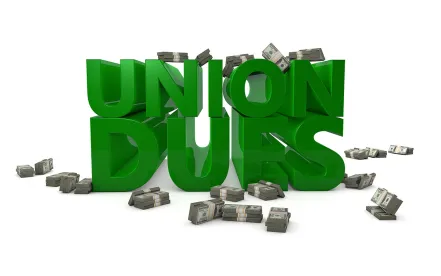In a 3-2 decision, the National Labor Relations Board (NLRB) has expanded its own authority to order consequential damages in all cases in which “make whole” relief is appropriate. Thryv, Inc., 372 NLRB No. 22 (Dec. 13, 2022).
Upon a satisfactory evidentiary showing, employers found to have violated the National Labor Relations Act will be ordered to compensate affected employees for all “direct or foreseeable pecuniary harms” resulting from unfair labor practices, the Board said.
While traditional make-whole remedies included backpay and lost benefits, the Board’s decision changes precedent, broadening the relief available to workers.
Background
Monetary remedies for violations of the Act have traditionally been limited to “make whole” relief — restoring an employee’s actual wages lost because of an employer’s (or a union’s) unfair labor practices. NLRB General Counsel (GC) Jennifer Abruzzo has announced (Memorandum GC 21-06) her intention to redefine what constitutes “make whole” relief by increasing monetary damages as a remedy for unfair labor practices.
In August 2021, Board Chairperson Lauren McFerran stated her view that the Board should reconsider “make whole” relief to include new remedies that, for the first time, would include consequential damages (such as costs arising from interest fees on unpaid credit card bills, withdrawal penalties for 401(k) loans, or foreclosure on a home). The Voorhees Care and Rehabilitation Center, 371 NLRB No. 22 (Aug. 25, 2021).
Subsequently, the Board issued a notice, in Thryv, Inc., 371 NLRB No. 37 (Nov. 10, 2021), inviting parties to submit briefs addressing the issue of whether the Board should expand its make-whole remedies “to more fully account for their actual economic losses.” This question posed to the public included whether consequential damages should only be limited to egregious violations of the Act and how such damages should be proved.
An Appropriate “Make Whole” Remedy
In Thryv, the Board initially found the employer failed to satisfy its duty to bargain before effectuating layoffs of six employees. While the underlying merits of the case were relatively unremarkable, the Board then charted an entirely new course on what types of harm can form the basis of an appropriate “make whole” remedy. For the first time, the Board found that the elements of such relief include, but are not limited to, “out-of-pocket medical expenses, credit card debt, or other costs simply in order to make ends meet.”
While these additional remedies will be available for all make-whole cases, the GC still must satisfy the requisite burden of proof during the compliance stage, including a satisfactory showing on the “amount of pecuniary harm, the direct or foreseeable nature of that harm, and why that harm is due to the respondent’s unfair labor practice.” In reply to such a showing, the respondent “will have the opportunity to present evidence challenging the amount of money claimed, argue that the harm was not direct or foreseeable, or that it would have occurred regardless of the unfair labor practice.”
The Board assured that it would “not issue remedial orders for harms which are unquantifiable, speculative, or nonspecific.” Thus, the GC will be required to provide evidence substantiating employees’ purported damages and requests for reimbursement. This evidence may be in the form of receipts, invoices, medical bills, and credit card or other financial statements. Such evidence also must establish the “specific, defined costs which would not have been incurred but for the respondent’s unlawful conduct or were the foreseeable consequence of that conduct—and explain how those costs are due to the unfair labor practice.”
Dissent
In their dissent, Board Members Marvin Kaplan and John Ring challenged the Board’s authority to order relief beyond traditional backpay remedies. They questioned the speculative nature of what harms are truly foreseeable and the difficulty in determining the “causal link” between the unfair labor practice and the alleged financial loss. The dissent also cautioned that the decision could run afoul of the Constitution, as well as U.S. Supreme Court jurisprudence prohibiting the Board from imposing punitive remedies.
Implications
Thryv applies prospectively and to all pending cases where the Board may order an employee to be made whole as a result of an unfair labor practice. While employers may enter into settlement agreements providing additional compensation for items unrelated to backpay, (e.g., late fees or baby formula), this decision expands the Board’s authority to expressly order such remedies.
Although the Board’s decision does not go so far as to issue remedies for “pain and suffering” or emotional distress, as initially requested by the GC, the NLRB still maintained that its decision did not “reflect the limits of the Board’s statutory remedial authority or that some other form of make-whole relief might not also be necessary in a future case.”
Therefore, now more than ever, employers must remain mindful that unfair labor practice claims may further increase costs and liabilities as a result of the Board’s expanded remedies and will almost certainly make compliance proceedings more complex.
David I. Solomon also contributed to this article.






 />i
/>i

